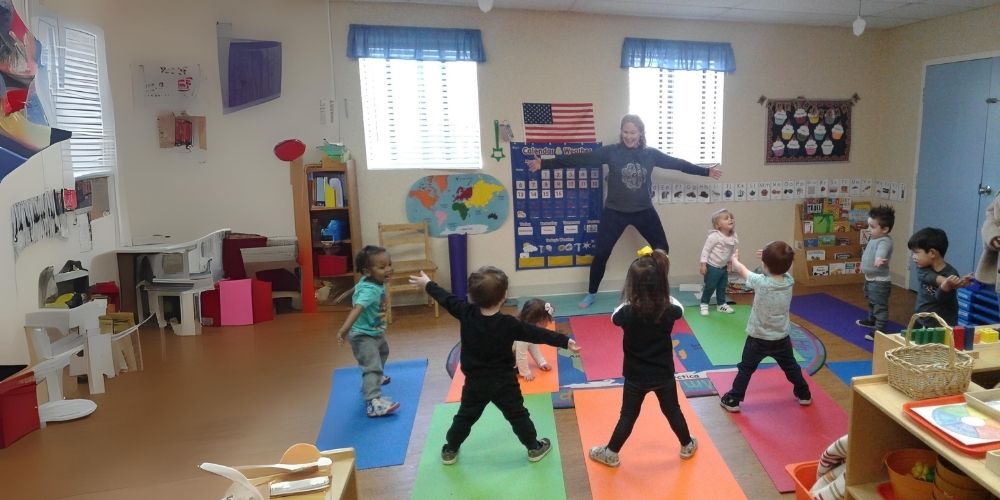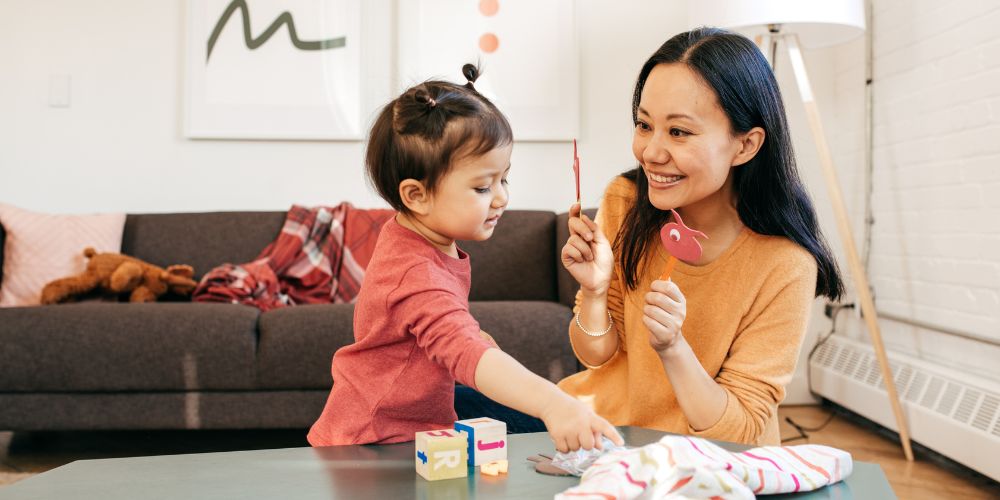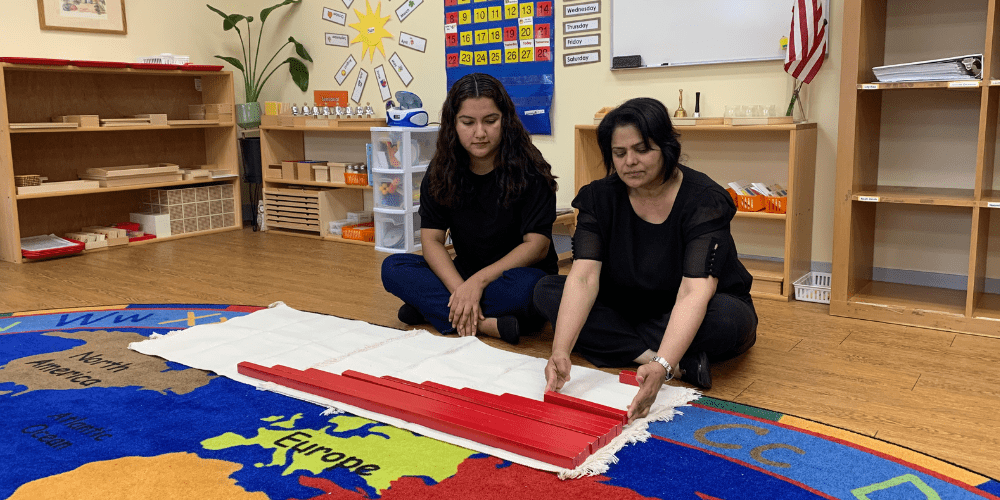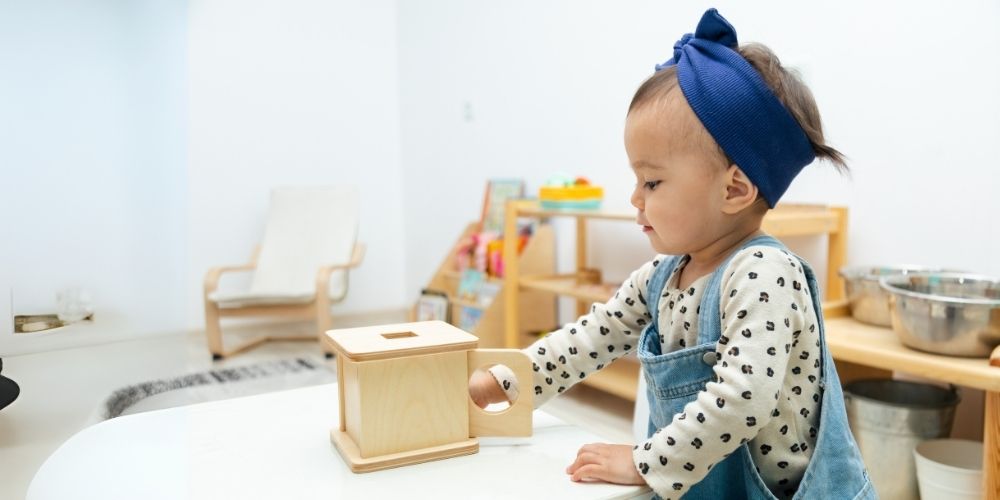How We Prepare Our Students For Elementary Learning & Beyond
A Montessori education emphasizes fostering independence, curiosity, and an intrinsic love for learning. Our experienced educators at Children’s Manor & Magnet Montessori Schools believe in nurturing each child’s unique potential by providing an academically rigorous, engaging, and supportive learning environment. Staying in a Montessori school through the early Elementary years offers numerous advantages that contribute to a child’s holistic development, providing a solid foundation with practical applications for their future. Below, we will take you through a few notable advantages of Montessori Education through Kindergarten and Elementary school.
Continuity of the Environment
Montessori education is designed to be a seamless progression from the early years to elementary education. By staying in a Montessori environment, your child will thrive in a consistent child-centered approach to learning. Students are already accustomed to the Montessori classroom, materials, and routines, which enables them to focus more on their learning and social interactions. The familiarity with teachers, who provide consistent teaching methods, allows a student to build upon the foundational knowledge and skills they acquired in earlier years. This continuity helps maintain a child’s enthusiasm for learning and prevents disruptions that otherwise occur when transitioning to a new/different educational system.
At CMMS, our students generally will be in a classroom for 1 to 2 years with the same teachers as they learn and grow: this allows the teacher to really get to know and work directly with and for the needs of a child, as well as provide parents with ongoing feedback on their continued growth and development, as well as things to work on at home.
Individualized Support
The setup and routine in a Montessori classroom caters to individual learning styles, allowing students to progress at their own pace and work on tasks that align with their abilities. Benefits of students remaining in Montessori through Kindergarten are that students can continue to deeply explore subjects of interest and receive personalized guidance from teachers. The smaller class sizes with lower teacher to student ratios further allows students to work ahead or receive additional support as needed on various subjects.
In Kindergarten and Elementary classrooms, Montessori educators continue to act as facilitators, guiding the students through their learning journey and providing them with the necessary tools to explore and discover. This approach ensures that each student is appropriately challenged and supported, fostering a love for learning and a sense of pride in their accomplishments. To ensure students are on track and meeting state standards, Montessori Teachers monitor the individual growth of all students and keep detailed records of how a child is progressing in their learning in each of the Montessori areas of Practical Life, Mathematics, Sensorial, Language, and Cultural Studies. This creates well-rounded students that have depth and breadth of knowledge, preparing them not only academically, but also socially and emotionally.
Science-Backed Research
At CMMS, our comprehensive curriculum leads to superior outcomes, as students receive not only targeted support and academic lessons, but also participate in our ongoing Enrichment Programs – including Music, Spanish, Computer Science, and Yoga. Research has shown that Montessori students often perform at least one grade level above their public school peers, which can be attributed to Montessori education’s emphasis on self-directed learning, hands-on experiences, and individualized instruction.
Graduates of Montessori programs also tend to demonstrate strong executive functioning skills, which are crucial for success both in academic pursuits and daily life. In 2021, researchers at the University of Virginia found that adults who spent at least two years in a Montessori school as a student reported a higher sense of well-being than people who never experienced the Montessori environment.
Did You Know That These Famous Figures Attended Montessori Schools?
- Jeff Bezos – Amazon Founder
- Steph Curry – NBA MVP
- Larry Page & Sergey Brin – Google Founder
- Joshua Bell – Grammy Award Winning Violinist and Conductor
- Anne Frank – Author/Diarist
- Julia Child – Chef, Author, TV Personality
- and many more!
Montessori Curriculum
CMMS’ proprietary Montessori Links curriculum integrates the five Montessori learning areas (Practical Life, Sensorial, Language, Mathematics, and Cultural Studies) with interdisciplinary connections in STEM, Character Development, Continent Study, and Author & Arts Study, while meeting and exceeding the academic standards set by the Maryland State Department of Education (MSDE).
Practice life activities focus on developing everyday life skills such as pouring, buttoning, tying shoelaces, and cleaning. These activities not only cultivate independence and self-confidence but also improve fine and gross motor skills and a student’s sense of order. The sensorial area aims to refine the senses through activities that explore size, shape, texture, sound, taste, and smell. By building on and expanding these concepts through Montessori Elementary classes, students continue to engage in sensorial experiences that enhance their ability to discriminate and perceive the world around them accurately.
Montessori language materials progress from phonetic awareness to reading and writing. Students learn through a multisensory approach that includes sandpaper letters, a moveable alphabet, and reading materials. This allows children to further develop their language skills, expand their vocabulary, and become confident and expressive communicators.
Similarly, hands-on Montessori mathematics materials introduce concepts concretely before moving to abstract ideas. Students use manipulative materials to understand operations, place value, and geometry. The Montessori cultural studies area covers a wide range of subjects, including geography, history, science, and art. Taking a global perspective, Montessori students explore various cultures, historical events, and scientific phenomena, enriching a sense of international awareness and interconnectedness.
Are You Ready To Learn More?
The continuity of the Montessori approach stimulates critical thinking and strong social-emotional skills, contributing to a well-rounded and confident learner. As you are looking for the school and learning approach that is the best match for your child, consider starting and continuing them in a Montessori environment to promote a consistent and individualized learning experience that supports the development of independence in practical life, sensory perception, effective language and communication skills, mathematical understanding, and cultural appreciation. Let us help you get your child ready for Elementary & Beyond – Schedule A Tour with us!





